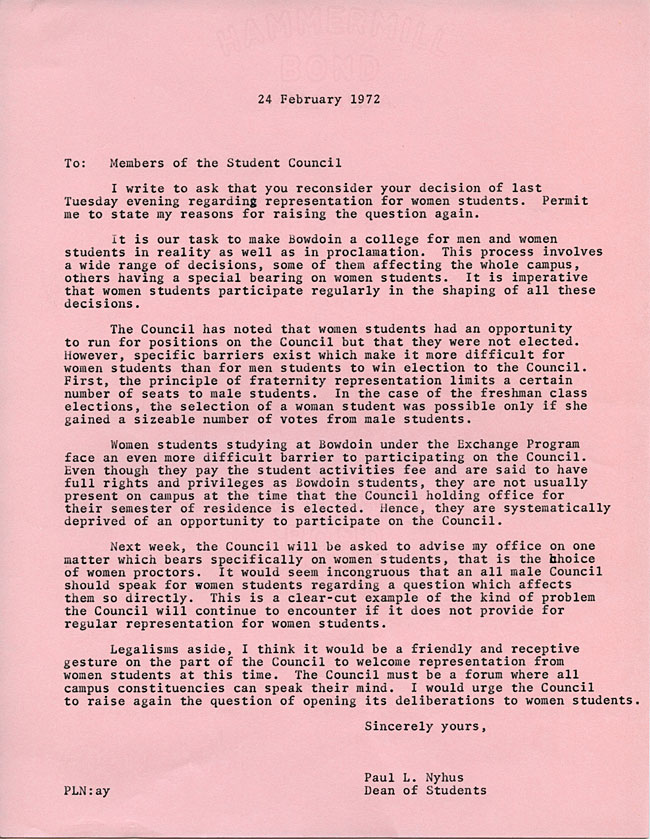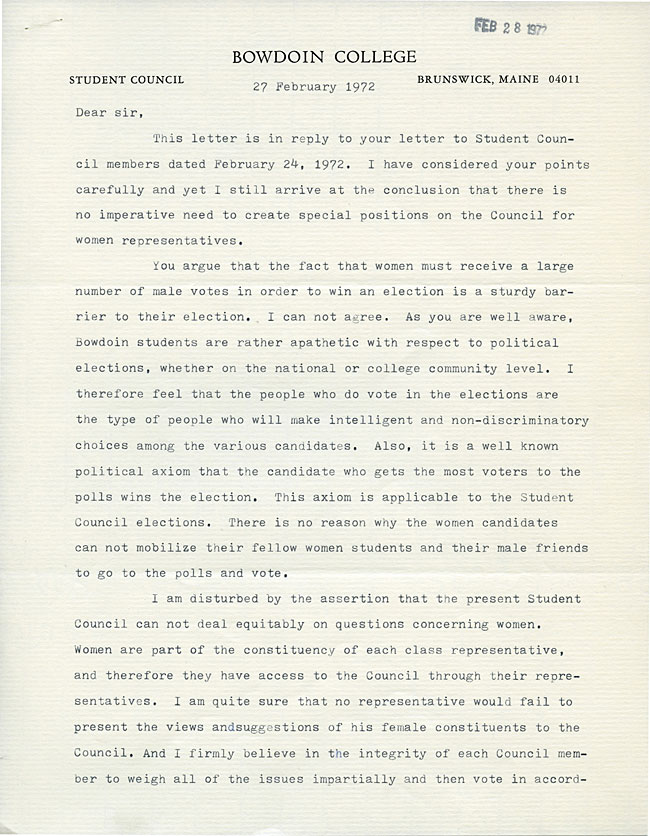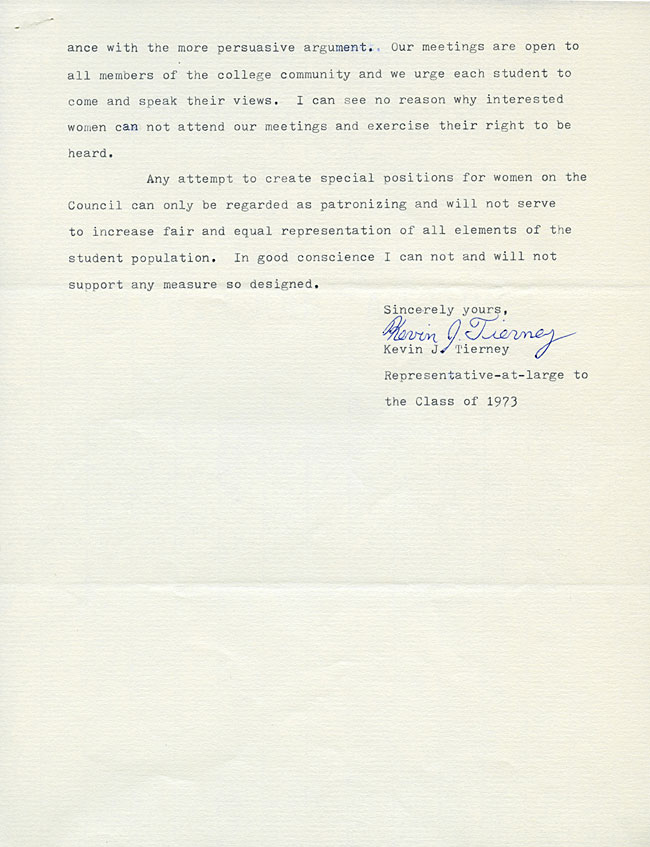Following the 1972 Bowdoin College Student Council elections, Dean Paul L. felt compelled to bring to the attention of the council a major concern of his – the underrepresentation of women in student government. In this letter exchange, Dean Nyhus lamented the fact that no women had been elected in this crucial election, and recommended that the Council remain sensitive to the “specific barriers” preventing women from being represented as readily as men (Document AK, 27.1). Some of these barriers were the preexisting requirement that all fraternities be represented, thus reserving a certain number of spaces for men; the fact that, due to sheer numbers, any woman would need to gain many male votes in order to win (which would be especially difficult for first-year women); and the fact that women exchange students would not have arrived on campus yet at the time of the elections, which took place the semester before the next governing term. Dean Nyhus went on to say that not only would it “seem incongruous that an all male council should speak for women students […]” but the council should “provide for regular representation of women students” as a “friendly and receptive gesture,” if nothing else.
In response, Representative-at-large Kevin J. Tierney wholeheartedly disagreed with Dean Nyhus’s recommendation for the special consideration of women on the Student Council (Document AK, 27.2). Mr. Tierney claimed that to make special accommodations for women would undermine the “political axiom that the candidate who gets the most voters to the polls wins the election.” Furthermore, he was affronted by the assumption that the men of the council would be unable to make decisions about issues impacting women as well as any woman could. The fact that Council meetings were public and could be attended by any woman at any time served, for him, to assuage any concern that their views would go unrepresented. Mr. Tierney concluded by saying, “Any attempt to create special positions for women on the Council can only be regarded as patronizing and will not serve to increase fair and equal representation of all elements of the student population.” In the fall of 2011, forty years later, women hold only 11 out of 32 positions on the Bowdoin Student Government.


